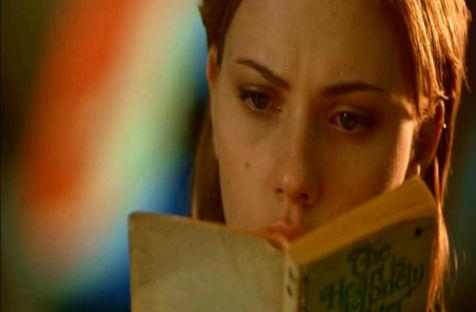More than just the money, case tests limits of creative expression. Novels are works of fiction, so what happens when you insert a celebrity into your narrative?
If it’s Scarlett Johansson, you might get sued. According to The Independent, the American star is seeking damages from French author Grégoire Delacourt and publisher JC Lattès, after a fictional character that resembles her appeared in Delacourt’s novel, La première chose qu’on regarde (The First Thing We Look At).
The character in question is described as being her doppleganger, or exact double. Delacourt contends that the comparison is a compliment and tribute to Johansson’s beauty, while the actress is demanding compensation and damages from the publisher for ‘the breach and fraudulent use of personal rights’.
The book, which has a premise that could’ve been inspired by erotic fan-fiction, centres on a mysterious woman who is identical to the Lost in Translation actor. In a village in the Somme in northern France, the woman knocks on the door of a mechanic, seeking assistance.
From the foreign rights catalogue of publisher JC Lattès:
On September 15th 2010 Arthur Dreyfuss, wearing a sleeveless T-shirt and Smurf underpants is watching an episode of The Sopranos when his doorbell rings. It is Scarlett Johansson. He is twenty years old and works in a garage as a mechanic. She is twenty-six and needs something repaired.
Unfortunately for Dreyfuss (not Richard), his dreams are dashed 60 pages into the book when it’s revealed that the woman is not actually the Hollywood heart-starter but Jeanine Foucaprez – Johansson’s exact double!
Mirroring the disbelief of his mechanic, Delacourt told French newspaper Le Figaro that he is ‘very sad’ and was ‘hoping that she might send me flowers because this book is, in a way, a declaration of love’.
Flowers are unlikely, seeing as Johansson most likely hasn’t even read the book, unless of course she’s taken a crash course in French. Talking to Le Figaro, Delacourt said, ‘I was stunned. I did not expect this at all. All this seemed huge. Especially since I’m not sure she read the book. It is not translated!’
While Delacourt describes Johansson as the ‘epitome of beauty’, whose ‘fragility… touches’ him, the only reaching out from her is through lawyers, with Johansson seeking to ban all foreign translations and film adaptations of the book on top of damages.
The actress known in the rag trade as ScarJo isn’t the only celeb to find herself stranded in northern France. A Ryan Gosling look-alike is the hero, while his boss resembles Gene Hackman. There’s no word on whether the villain resembles Gary Oldman.
While Delacourt’s reliance on penning ‘look-alike’ characters might seem a little lazy, apparently the inclusion of celebrity doppelgangers is a satirical comment on celebrity culture. His work, ‘corresponds to the fantasies of our time’, he tells La Figaro, protesting that famous people live amongst us and are ‘imposed on us’ through the media, press and Internet. ‘Scarlett Johansson is a public figure.’
Setting aside the creep factor, Delacourt has a point. Writers have been including public figures and famous people in their stories for decades.
Don Delilo’s acclaimed novel Underworld features major league baseballer Ralph Branca, comedian Bobby Thompson and Frank Sinatra, all whom were alive when the novel was published. Winston Groom’s sequel to Forrest Gump, Gump & Co. features his fictional Forrest Gump interacting with Tom Hanks, after Groom’s first book is adapted into a movie. Gump also goes on The Late Show with David Letterman and attends the Academy Awards. Similarly, Brett Easton Ellis’ works are littered with literary representations of real people. In Glamorama the protagonist hangs out with Johnny Depp and is stalked by a Christian Bale look-alike. Bale obviously had no qualms with this, later starring in the film adaptation of American Psycho.
‘Her complaint is based on exactly the phenomenon I am denouncing. It’s a paradox,’ Delacourt said. ‘But I suppose it’s all very American.’
But is it American? What jurisdiction Johansson intends to take her case remains unknown. In America, the Rights of Writers blog states that, ‘You do not libel someone simply by depicting him or her in fictional circumstances. Libel requires a false and defamatory statement of fact “of and concerning” an identifiable living person (or business entity).’
Since Delacourt’s Johansson doppleganger is actually Jeanine Foucamprez, it remains to be seen whether she has a legal leg to stand on.
The author points out that using the resemblance of a famous person is simply drawing from the world around us. ‘If we cannot mention the things that surround us – a beer, a monument, an actor – it will become difficult for us to write fiction.’
While the outcome of Johansson’s action remains uncertain, it’s like that The First Thing We Look At, which has been a bestseller since publication in March, will undoubtedly receive a spike in sales.





